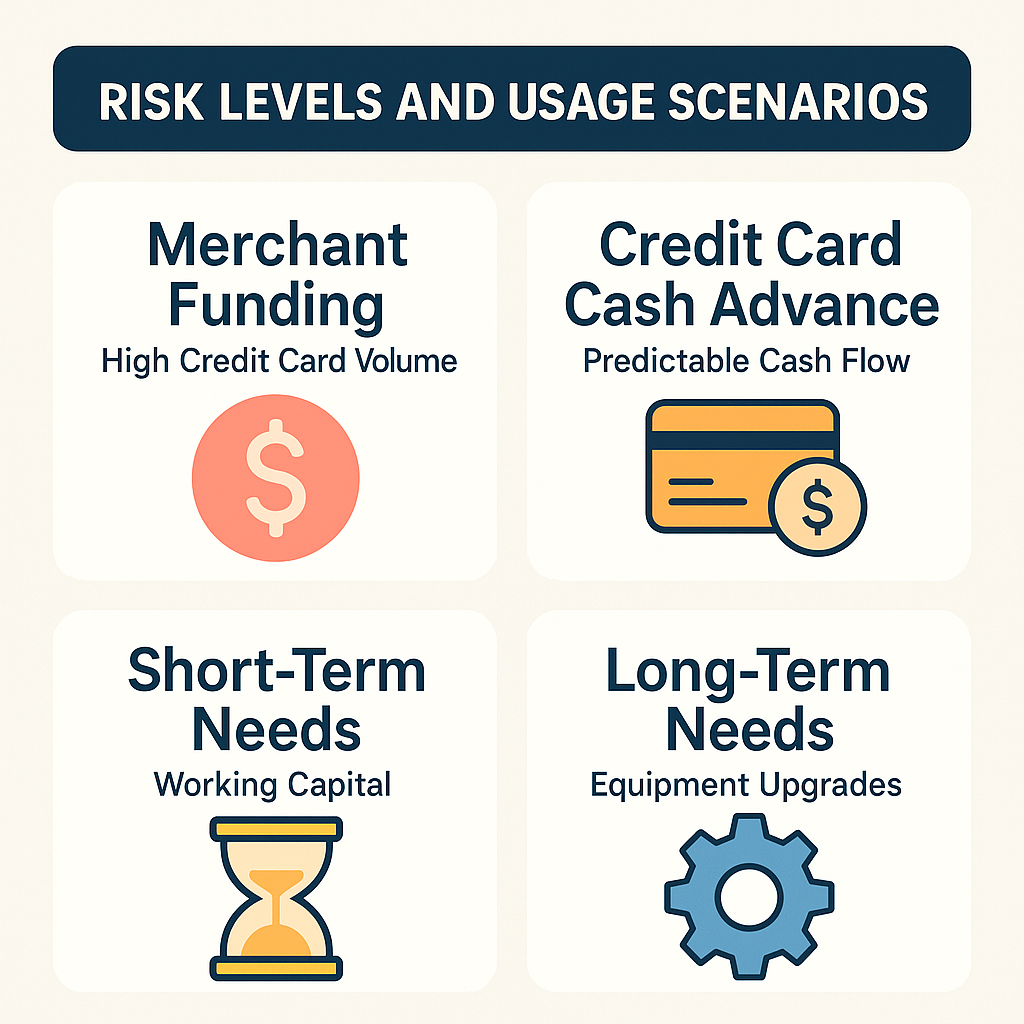When your business needs quick capital, you might find yourself weighing merchant funding vs credit card cash advance options. Both provide rapid access to funds, but they operate differently in terms of cost structure, repayment methods, and eligibility requirements. Understanding these distinctions can help you choose the financing solution that aligns with your business's cash flow patterns and growth objectives.
Do's for Choosing Business Funding Options
Making smart decisions about merchant funding vs credit card cash advance options requires careful consideration of your business circumstances and financial goals.
- Do analyze your daily sales volume: Merchant cash advances typically work better for businesses with consistent daily credit card transactions, as repayment is often tied to your sales activity rather than fixed monthly payments.
- Do compare the total cost of capital: Look beyond interest rates to factor fees, which may vary significantly between merchant funding and credit card cash advances based on your creditworthiness and business profile.
- Do evaluate your repayment capacity: Consider whether your cash flow can handle the typically shorter repayment terms that often accompany merchant cash advances compared to traditional credit options.
- Do review state regulations: Stay informed about local MCA laws and compliance requirements, as regulatory environments can affect terms and availability of different funding options in your area.
Don'ts When Comparing Funding Solutions
Avoiding common mistakes in the merchant funding vs credit card cash advance decision can save your business from unnecessary costs and complications.
- Don't ignore the payment structure differences: Merchant cash advances often involve daily or weekly collections based on sales, while credit card cash advances typically require fixed payments regardless of your revenue fluctuations.
- Don't overlook eligibility requirements: Each option may have different criteria for approval, including credit scores, time in business, and revenue thresholds that could affect your qualification.
- Don't assume all terms are negotiable: Merchant funding products may have less regulatory oversight than traditional credit products, potentially limiting your ability to negotiate certain terms.
- Don't rush the decision: Quick access to capital shouldn't override careful evaluation of how each option fits your specific business model and seasonal cash flow patterns.
Understanding Risk Levels and Usage Scenarios

The choice between merchant funding vs credit card cash advance often depends on your business's risk profile and specific funding needs. Merchant cash advances may involve different risk considerations due to their less stringent regulatory environment compared to traditional credit products.
Your business type and sales patterns can influence which option might be more suitable. Restaurants, retail stores, and service businesses with high credit card transaction volumes may find merchant funding aligns better with their revenue cycles. Meanwhile, businesses with more predictable cash flows might prefer the structured payment approach of credit card cash advances.
Consider your intended use for the funds as well. Short-term working capital needs, inventory purchases, or equipment upgrades may call for different funding approaches. The borrowing amounts available through each option can vary, with merchant cash advances often providing smaller amounts than traditional business credit lines but with faster approval processes.
The decision between merchant funding vs credit card cash advance ultimately depends on your business's unique circumstances, cash flow patterns, and growth objectives. Take time to evaluate the cost comparison, payment structure, and eligibility requirements of each option before making your choice. As regulatory changes continue to shape the merchant funding landscape, staying informed about evolving requirements can help ensure you select the most appropriate financing solution for your business needs.

.png)






